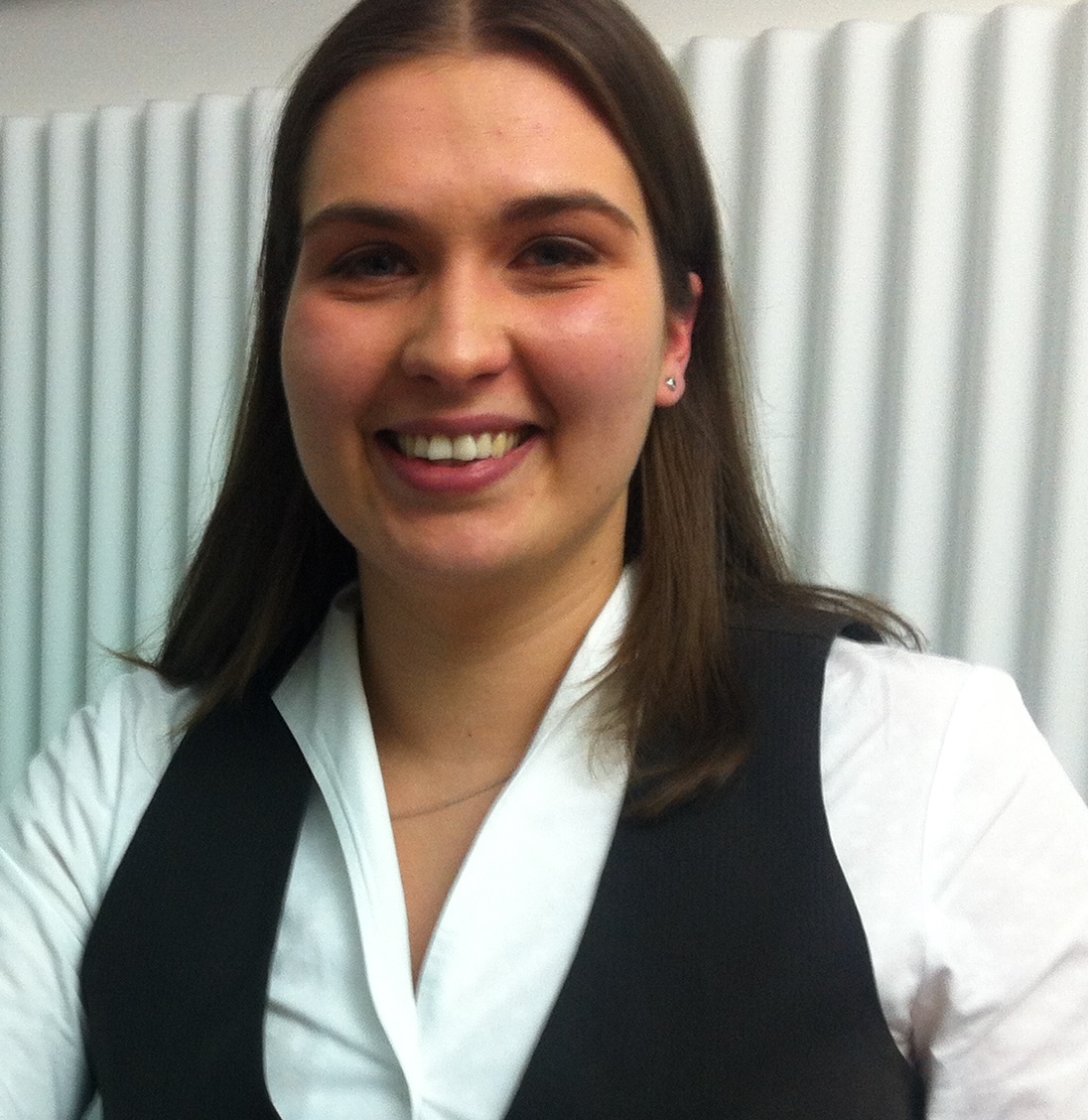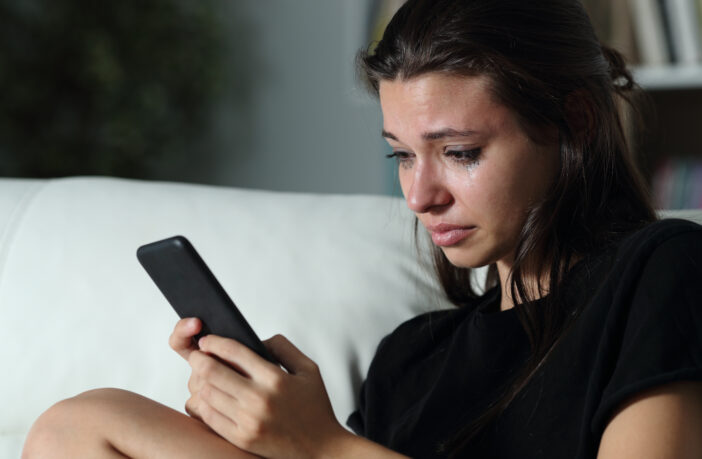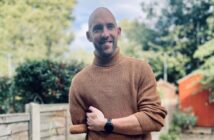- Over one in 10 women in England have experienced online violence, while three in 10 women (30%) have witnessed online violence
- Seven in 10 (68%) believe that current legislation is ineffective at tackling online violence against women and girls in England
- One in eight (13%) of women in England who experienced online violence say this progressed to offline violence, with 11% in Scotland, 14% in Wales, and 14% in Northern Ireland experiencing the same
- The Open University surveyed 7,500 adults across the UK in what is the largest-ever study into online violence against women and girls.
Researchers from The Open University have carried out the UK’s largest ever study into societal attitudes and experiences of online violence against women and girls (OVAWG) across England, Scotland, Wales and Northern Ireland.
The findings reveal that over one in 10 women in England have experienced online violence, with this figure increasing amongst those aged 16-24 (25%) and LGTBQ+ women (35%). Of those women who have experienced online violence, over one in ten (13%) said it later progressed to offline violence.
Online anonymity (49%), ease of getting away with it (47%) and misogyny (43%) top the most commonly perceived reasons for why people commit online violence against women and girls.
The data illustrated some concerning gender divides, with men in England less likely than women to support making OVAWG a criminal offence (over 50% of men strongly supporting vs over 69% women). Men (19%) were also more likely than women (10%) to believe that legally prohibiting online violence would limit their freedom of expression. Men are also more likely than women in England to say that the UK government is doing enough to address OVAWG (19% of men strongly agree vs 11% of women).
The data showed a lack of confidence on the part of women and girls, that the authorities would deal effectively with a report of online violence. Women who have experienced online violence are more likely to have sought support from their friends (29%) or family (16%) rather than the police (6%). And 57% of women in England stated that they thought the police lacked the resources needed to tackle online violence against women and girls effectively. Seven in ten (71%) of women in England who say they did report online violence to the police are not satisfied with the outcome.
When comparing responses across the nations, the research showed that women and girls in Scotland were more likely to have witnessed the most online violence (35%) in comparison to those in England (30%), Wales and Northern Ireland (27%) and women in Scotland and Wales were most likely to have experienced it (17%).
Professor Olga Jurasz, Professor of Law at The Open University and Director of the Observatory on Online Violence Against Women, who led the project, said:

Professor Olga Jurasz
“Online violence against women and girls can take many forms such as trolling, threats, abuse, unwanted sexual remarks, non-consensual sharing of intimate photos and messages, among many other examples and it disproportionately effects women. This can have a serious impact on women’s wellbeing and their behaviour, including a negative impact on mental and physical health, having to implement measures to protect themselves from abuse, and a change in willingness or ability to express views online.
This new research – the first ever to be conducted into OVAWG at this scale across the four nations – shows just how widespread the issue of OVAWG really is and will provide policy makers with a foundation to help reduce instances of OVAWG and to improve outcomes for those affected.”
Professor Lynne Gabriel, OBE, President of the British Association for Counselling and Psychotherapy (BACP) comments:
“The Open University researchers are to be applauded. The scale of their research project is welcomed, its findings less so. Online and digital platforms are virtually unregulated, and as these findings show there are individuals who cannot moderate their online behaviour. Most humans condemn toxic and harmful behaviour against others and, whatever stance we take on the regulation of human behaviours, abuse is always unacceptable.
It is disturbing that as a human race we continue to perpetrate abuse. This research will provide valuable evidence for many including counselling and mental health professionals, policy makers, educators, researchers and social media platforms who are looking to stop online violence against women and girls.
For anyone who is subject to abuse, counselling is a valuable source of help and healing. Registered counsellors can be found through Professional Standards Authority accredited registers which are held by the leading UK professional bodies for counselling and psychotherapy, including BACP.”
Andrea Simon, Director of the End Violence Against Women Coalition EVAW):
“Our lives are increasingly lived online and technological developments are creating new ways for violence against women and girls to be perpetrated. This abuse is connected to the threat of violence women and girls face offline – it cannot be minimised or ignored.
The laws we have in place are ineffective at tackling online violence against women and girls – we’re pleased to see that 68% of women and girls agree. We call on the government to make sure its new guidance in the Online Safety Bill is effectively enforced and as robust as the Code of Practice we developed with specialist partners and legal experts.”
The first of its kind report surveyed 7500 adults* over the age of 16, via YouGov, providing an insight into the societal attitudes of both men and women, and the lived experiences of women and girls across the four nations.
The OVAWG research project forms part of the university’s OU’s Open Societal Challenges Programme, which aims to tackle some of the most important societal challenges of our time through impact-driven research. The Programme’s focus on the themes of Tackling Inequalities, Living Well and Sustainability align well with the OU’s mission to be open to people, places, methods and ideas.
The Programme’s aim is to apply excellent research by OU academics to some of the most pressing challenges facing people across the UK and worldwide to transform lives and drive societal change.
With backing from the OU’s Societal Challenge Programme, in 2022, Dr Kim Barker and Professor Olga Jurasz launched the Observatory on Online Violence Against Women (ObserVAW). The Observatory is set to become Europe’s first to unite leading academics, non-governmental organisations (NGOs), policymakers, regulators, legal practitioners, educators and social media platforms to fight digital abuse.



